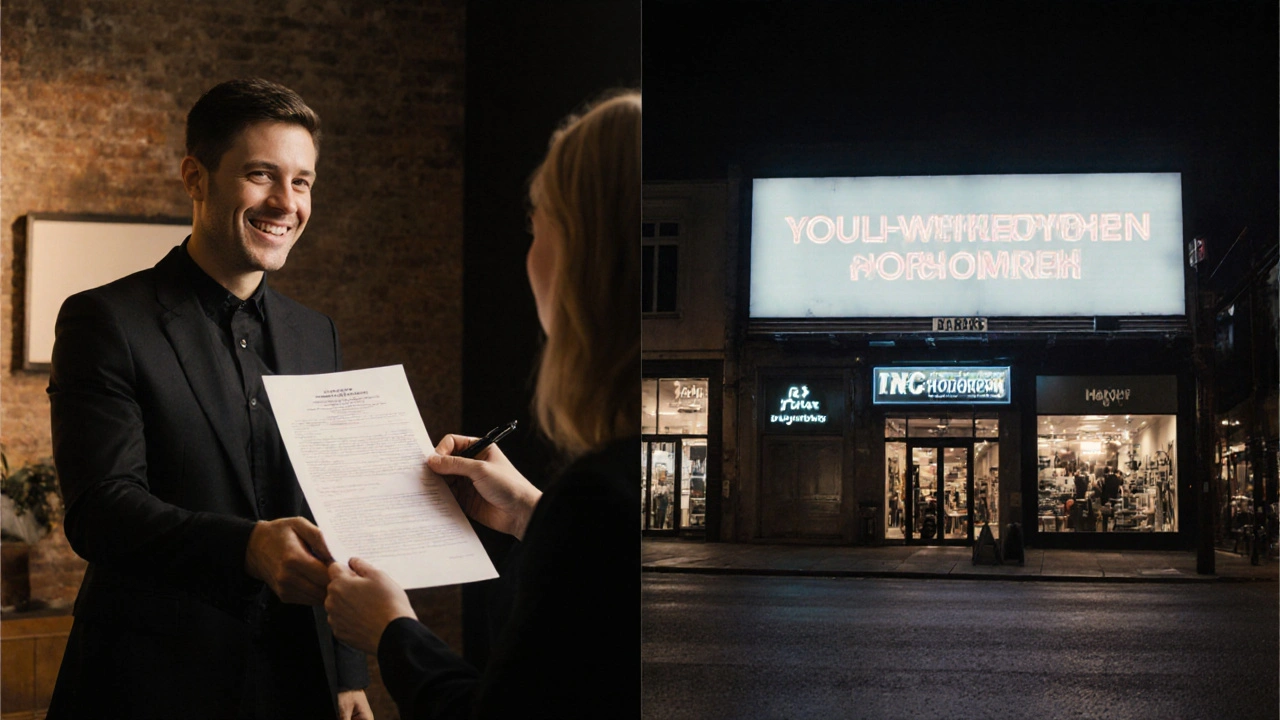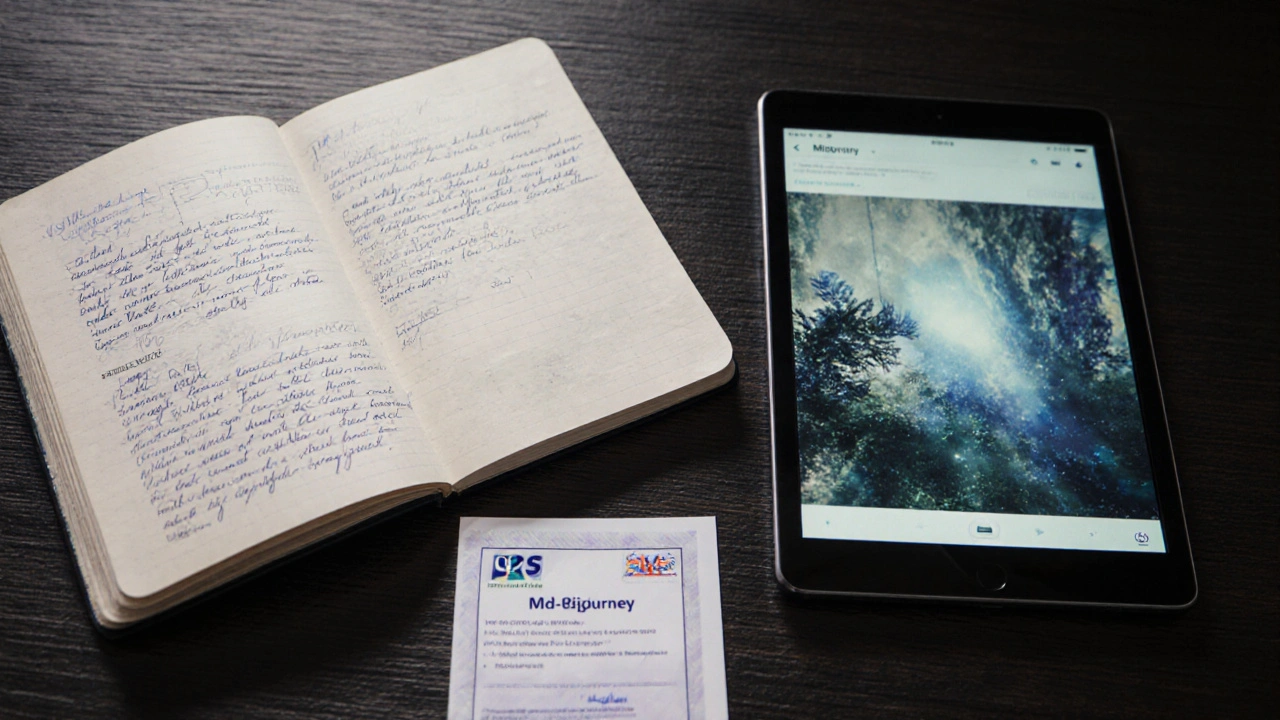Photography Businesses in the UK: Contracts, Licensing, and IP Explained
20 Nov, 2025Running a photography business in the UK isn’t just about taking great pictures. It’s about protecting your work, getting paid fairly, and staying legal. Too many photographers skip the paperwork until something goes wrong - a client refuses to pay, someone uses their image without permission, or a contract leaves them with no rights. By then, it’s too late. The truth? If you don’t have clear contracts, proper licensing, and a solid understanding of intellectual property, you’re running a business on luck - not law.
Why Photography Contracts Are Non-Negotiable
A handshake and a smile won’t hold up in court. Every photography business in the UK needs a written contract. It’s not optional. It’s the foundation. Without one, you have no legal standing to enforce payment, delivery timelines, usage rights, or even who owns the images.Simple contracts often miss key details. For example, does your client own the photos? Can they print them on mugs? Can they sell them? If you didn’t write it down, they might assume yes - and you’ll be stuck chasing them for royalties or legal fees.
At minimum, your contract should include:
- Full names and contact info for both parties
- Scope of work: date, location, number of images, deliverables
- Payment schedule: deposit, final payment, late fees
- Usage rights: what the client can do with the photos (personal, commercial, social media)
- Copyright ownership: you retain copyright unless explicitly transferred
- Model and property releases: if people or private property appear
- Cancellation policy: who pays if the shoot gets called off
Some photographers use templates from online legal services like LawDepot or Rocket Lawyer. Others hire a solicitor to draft one. Either way, tailor it. A wedding contract isn’t the same as a product shoot for a small business. A generic template won’t protect you if a client uses your images in a national ad campaign without paying extra.
Who Owns the Copyright? (It’s Not Who You Think)
Under UK law, the photographer automatically owns the copyright to every photo they take. That’s true even if the client paid for the shoot. You don’t need to register your work. You don’t need to put a © symbol on it. Copyright exists the moment the shutter clicks.But here’s where people get confused: owning copyright doesn’t mean you control how the images are used. That’s where licensing comes in.
Think of copyright like the title to a car. You own the car. But you can let someone else drive it - for a fee, for a certain time, for certain roads. That’s licensing.
Most clients don’t need full copyright. They just want to use your photos on their website or Instagram. You can grant them a non-exclusive, non-transferable license for that. Keep the copyright. Charge extra if they want to use the images in ads, merchandise, or resale.
Never sign a contract that says you’re transferring copyright unless you’re being paid a premium - think £1,000+ for a single shoot. Most photographers give away rights for free because they don’t know better. That’s like selling your house for the price of a new fridge.
Licensing: What You Can and Can’t Allow
Licensing isn’t one-size-fits-all. The type of license you offer depends on the client and the use. Here are the most common types:- Personal Use License: Client can share on social media, print for home. No commercial use. Often included in basic packages.
- Commercial Use License: Client can use images for marketing, websites, brochures. Requires higher fee. Specify duration and media (e.g., “12 months, digital only”).
- Exclusive License: Only the client can use the images. Rare. You can’t sell or use them yourself. Requires significant payment.
- Worldwide, Unlimited License: Client can use the images anywhere, forever. Only for big brands. Charge accordingly.
Always define the scope clearly. For example: “License granted for use on client’s website and Instagram feed for 24 months. No use on printed products, packaging, or advertising.”
Some photographers charge a one-time fee. Others charge per usage. A product photographer might charge £250 for website use and another £500 if the client wants to use the same image on a billboard. That’s fair. You’re creating value - don’t give it away.

What Happens When Someone Steals Your Photos?
You post a photo on Instagram. A local business copies it for their Facebook page. No credit. No payment. What now?First, don’t panic. Most cases are unintentional. The business didn’t know it was illegal. Start by sending a polite DM or email. Include:
- A link to your original image
- A link to their use
- A request to remove it or pay a licensing fee
Many will comply. If they don’t, send a formal cease-and-desist letter. You can use templates from the British Photographic Alliance or the UK Intellectual Property Office. No lawyer needed yet.
If they still refuse, you can file a claim in the Small Claims Court. The limit is £10,000. You can claim for:
- Lost licensing fees
- Legal costs
- Damage to your brand
Keep records. Save your original files with metadata. Use watermarking. Register your work with the UK Copyright Service (£15/year) - it’s not required, but it gives you dated proof if you ever need it.
Model and Property Releases: Don’t Skip These
You shoot a street portrait. The person looks amazing. You post it on your website. A year later, they sue you for using their image without permission. Sounds unfair? It happens. In the UK, you don’t need a model release for editorial use - like news or art. But if the image is used for commercial purposes - advertising, branding, products - you do.Same goes for private property. Shoot a boutique hotel’s interior? You need written permission from the owner if you’re selling the photo or using it in your portfolio for commercial gain.
Always get a signed release form. Even if the person says “sure, go ahead.” Get it in writing. Use a simple template: name, date, description of use, signature. Keep copies. You can find free templates from the British Institute of Professional Photography.

What About AI-Generated Images? (And Your Clients Asking for Them)
In 2025, clients are asking: “Can you use AI to edit this?” “Can you generate a background?” “Can you make it look like a famous artist?”Here’s the legal reality: Under UK law, AI-generated images don’t have copyright unless a human has made a substantial creative contribution. If you just type “a woman in a red dress, studio lighting” into Midjourney and hand it to a client, you don’t own it. They can’t own it either. It’s in the public domain.
But if you heavily edit it - retouching, compositing, adding lighting, adjusting composition - you might qualify for copyright. The key is human creativity. Don’t promise AI images as your own work. Be transparent. If you’re using AI, say so. And never use AI to replicate someone else’s style without permission. That’s a lawsuit waiting to happen.
What You Should Do Right Now
If you’re running a photography business in the UK and you’re not sure about your contracts or rights, here’s what to do this week:- Review every contract you’ve used in the last year. Are copyright and licensing clearly stated?
- Update your template with clear usage terms. Use the UK Intellectual Property Office’s guidance as a baseline.
- Start using model and property release forms for every shoot involving people or private property.
- Register your portfolio with the UK Copyright Service - it costs less than £2 a month.
- Learn how to send a cease-and-desist letter. You don’t need a lawyer for the first step.
Photography is creative. But your business isn’t. It’s a job. And like any job, you need the right tools. Contracts aren’t boring paperwork. They’re your shield. Licensing isn’t a sales tactic - it’s your income stream. Copyright isn’t a legal buzzword - it’s your asset.
Protect it. Document it. Charge for it. The world will keep using your photos. Make sure you’re the one who gets paid.
Do I need to register my photos to own copyright in the UK?
No. Copyright in the UK is automatic. The moment you take a photo, you own the copyright. You don’t need to register it, add a © symbol, or file paperwork. But registering with the UK Copyright Service gives you dated proof, which helps if someone steals your work and you need to take legal action.
Can a client use my photos on their website without paying extra?
Only if your contract says so. Most clients assume they can use photos anywhere after paying for a shoot. That’s not true. You need to grant them a license. For website use, a standard commercial license often costs 20-50% more than a basic personal use license. Always specify usage limits in writing.
What if someone uses my photo on a product they’re selling?
That’s a clear copyright violation unless you gave them a license for merchandise. Selling products with your photos - mugs, t-shirts, posters - requires an explicit commercial license. You can charge a royalty fee or a flat rate. If they’re doing it without permission, send a cease-and-desist. If they ignore it, you can sue in Small Claims Court for lost income and damages.
Do I need a model release for every person I photograph?
Only if you plan to use the photo for commercial purposes - advertising, marketing, or selling products. For editorial use like news or art, you don’t. But if you’re unsure, always get a release. It’s easier to ask for one than to deal with a lawsuit later. Use a simple form with their name, signature, and what you’re allowed to do with the image.
Can I use AI to edit my photos and still own the copyright?
Yes - but only if you’ve made substantial creative changes. If you just run a prompt and download the result, you don’t own it. If you spend hours editing, compositing, color grading, and retouching the AI output, then you likely qualify for copyright. Always disclose AI use to clients. Don’t pretend the image is fully your own if AI played a major role.
What’s the best way to protect my photos online?
Use watermarks on social media, keep high-res originals offline, and use metadata (EXIF) with your name and copyright info. Register your portfolio with the UK Copyright Service. Monitor your images with reverse image search tools like Google Images or TinEye. If you find misuse, act fast - send a polite request first, then a formal notice.
